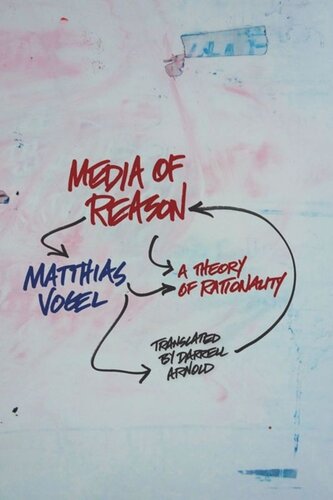

Most ebook files are in PDF format, so you can easily read them using various software such as Foxit Reader or directly on the Google Chrome browser.
Some ebook files are released by publishers in other formats such as .awz, .mobi, .epub, .fb2, etc. You may need to install specific software to read these formats on mobile/PC, such as Calibre.
Please read the tutorial at this link: https://ebookbell.com/faq
We offer FREE conversion to the popular formats you request; however, this may take some time. Therefore, right after payment, please email us, and we will try to provide the service as quickly as possible.
For some exceptional file formats or broken links (if any), please refrain from opening any disputes. Instead, email us first, and we will try to assist within a maximum of 6 hours.
EbookBell Team

4.4
62 reviewsMatthias Vogel challenges the belief, dominant in contemporary philosophy, that reason is determined solely by our discursive, linguistic abilities as communicative beings. In his view, the medium of language is not the only force of reason. Music, art, and other nonlinguistic forms of communication and understanding are also significant. Introducing an expansive theory of mind that accounts for highly sophisticated, penetrative media, Vogel advances a novel conception of rationality while freeing philosophy from its exclusive attachment to linguistics.
Vogel's media of reason treats all kinds of understanding and thought, propositional and nonpropositional, as important to the processes and production of knowledge and thinking. By developing an account of rationality grounded in a new conception of media, he raises the profile of the prelinguistic and nonlinguistic dimensions of rationality and advances the Enlightenment project, buffering it against the postmodern critique that the movement fails to appreciate aesthetic experience.
Guided by the work of Jürgen Habermas, Donald Davidson, and a range of media theorists, including Marshall McLuhan, Vogel rebuilds, if he does not remake, the relationship among various forms of media—books, movies, newspapers, the Internet, and television—while offering an original and exciting contribution to media theory.